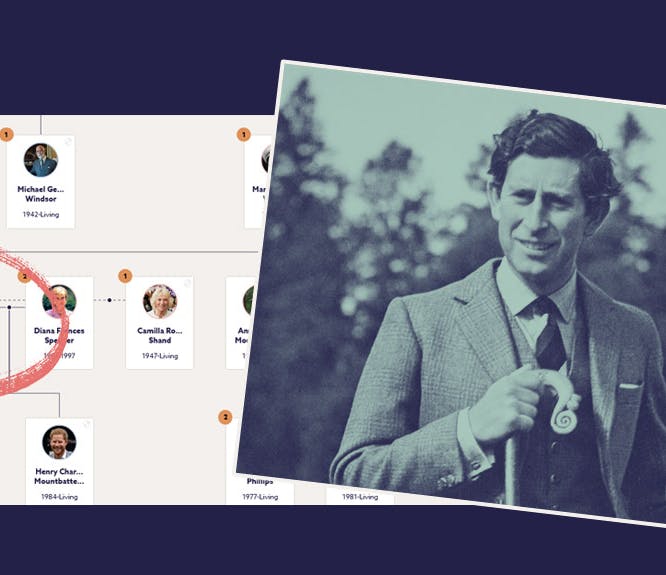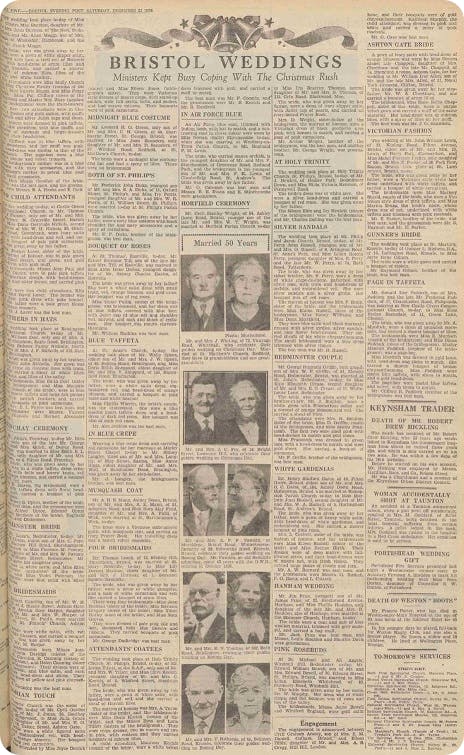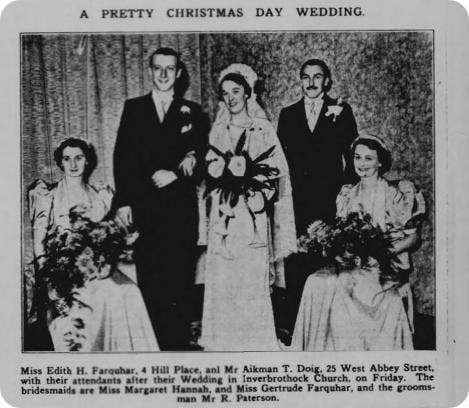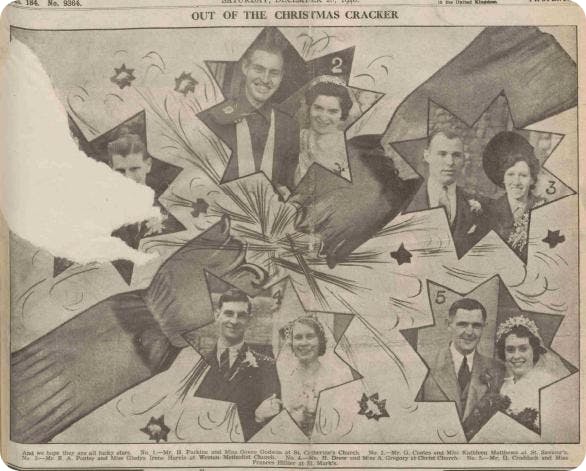Here's why there used to be so many Christmas Day weddings
3-4 minute read
By Daisy Goddard | December 4, 2024
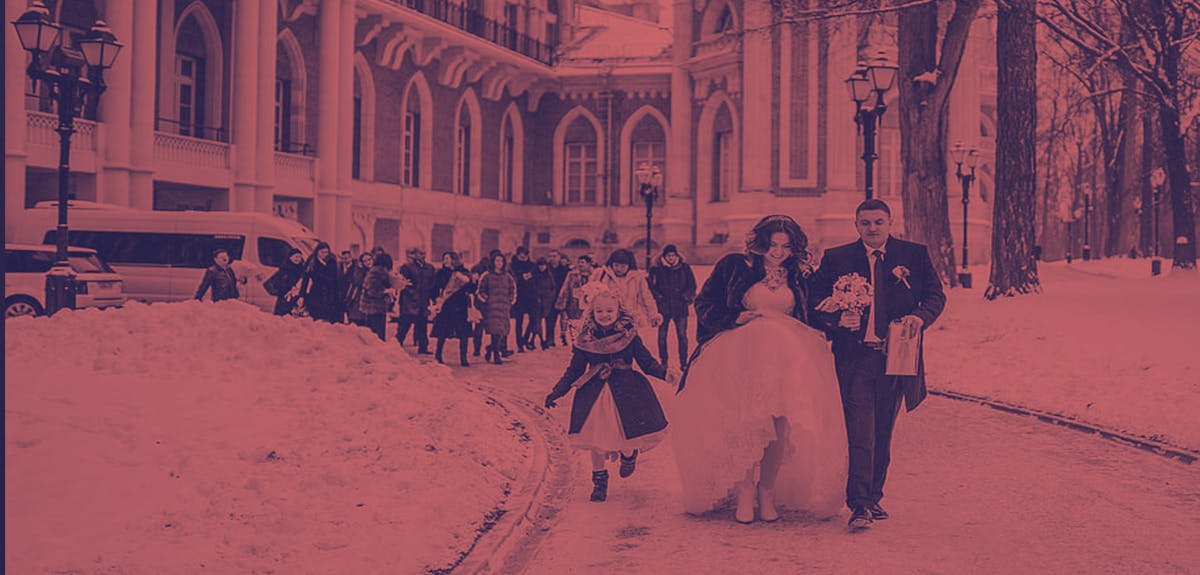
Why did a lot of people get married on Christmas day in times gone by? The reason is not as romantic or festive as you might imagine.
You may have discovered the odd Christmas Day wedding during the course of your family research. While this may appear to suggest that your ancestors chose the special date for its romantic meaning, the reality was usually rather more practical.
During the 18th and 19th centuries, getting married on Christmas Day itself was a popular tradition, with churches across the country holding festive nuptials every 25 December.
However, couples who chose to opt for a Christmas Day wedding would have rarely done so out of a desire to capture a sense of seasonal romance. Christmas Day weddings usually occurred out of necessity.
Christmas and Boxing Day were often the only days of the year that young working-class couples were guaranteed to get off work. Even Charles Dickens' Ebenezer Scrooge was forced to reluctantly give his long-suffering clerk, Bob Cratchett, the day off in the opening chapter of A Christmas Carol.
Is Christmas Day a bank holiday?
Christmas Day is a traditional holiday and is not, and never has been, a bank holiday in England, Wales or Ireland. Sir John Lubbock first introduced bank holidays.
He was a banker and politician who loved his cricket and couldn't stand the idea of competitors gaining an advantage by trading on days he and his staff went to support or play in their local village matches. He introduced the Bank Holidays Act of 1871, which recognised four official bank holidays - Easter Monday, Whit Monday (the first Monday in August), and Boxing Day. The same act did make Christmas Day a bank holiday in Scotland.
In the 1800s, most people worked six days a week and didn't get paid when they didn't work which, of course, the vast majority of people could ill afford. It wasn't like today when you can simply request holidays to marry on whichever day of the year takes your fancy.
It was only with the rise of the trade unions in the 20th century that working conditions and employee rights started to improve and the tradition began to die out.
However, enthusiastic reports of Christmas Day weddings can be found within our collection of historical newspapers right through the 1940s and even into the early 1950s.
Old marriage customs and traditions
The process our ancestors went through in order to arrange a marriage was uncomplicated with just three readings of the banns on three consecutive Sundays being all that was required. An ancient legal tradition, banns are an announcement in church of a couple's intention to marry. The readings provided an opportunity for anybody to declare a reason why the marriage may not lawfully take place.
Most weddings were simple, small affairs with few guests and even fewer of the expensive trappings and traditions associated with modern weddings. Best clothes would be worn as they would be on any Sunday and a short service would be followed by dancing and making merry at home, in the local barn or pub.
Christmas Day weddings appear to have been even more common in inner-city areas, home to large industrial working-class communities. In a number of cities, particularly in London, it was a tradition that churches offered free marriages and baptisms on 25 December. Group weddings appear to have been routinely performed east of St. Paul's Cathedral, and in the poorer quarters of the city.
What were penny weddings?
Penny weddings, so-called because each of the contracting parties paid this modest sum for the privilege of being united in the bonds of matrimony, were another relatively common form of working-class marriages. In fact, they were so common that church ministers would occasionally advertise the speed with which they could perform a ceremony.
By the turn of the 20th century, penny weddings had largely died out as inflation meant that even the very cheapest of ceremonies cost a fee of about six shillings. However, penny weddings were still performed on Christmas Day by a number of churches in London as special acts of festive charity.
While the practice began to fall out of favour in the early 20th century, Christmas Day weddings enjoyed a brief resurgence during the 1940s as the lives and romances of many young couples were thrown into turmoil by the Second World War. The majority of young men were in military service while a significant number of women were conducting essential war work with leave hard to come by. Many couples used the rare instances of home leave they were given on Christmas Day to wed before they were separated again and sent off to face uncertain futures.
Can you get married on Christmas Day now?
Weddings on December 25 are now virtually unheard of due to improved working conditions, less availability and a sharp increase in the cost of venues, catering and staff during the festive season.
Search our collections of marriage and banns records, as well as our historical newspapers, to discover if your family tree grew a new branch one Christmas Day long ago.
Related articles recommended for you

Catholic family history: A genealogist's guide to the Latin language
Help Hub

Everything you need to know about importing and exporting family tree GEDCOM files
Build Your Family Tree
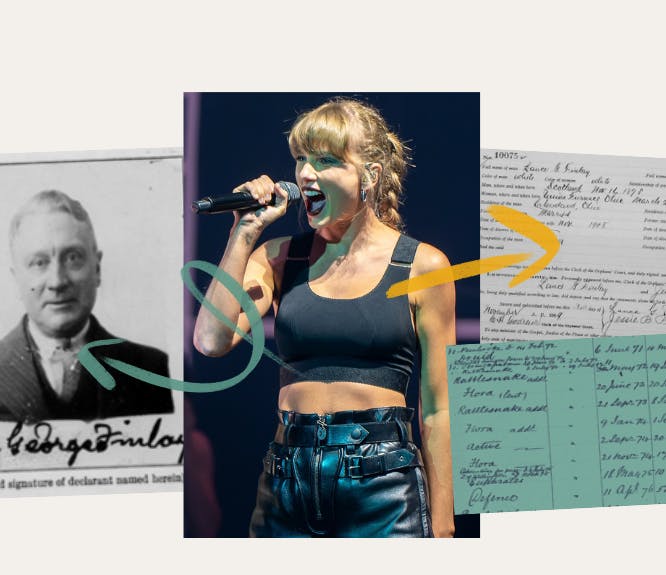
Taylor Swift’s family tree shines with love, heartbreak and the triumph of the human spirit
Discoveries
